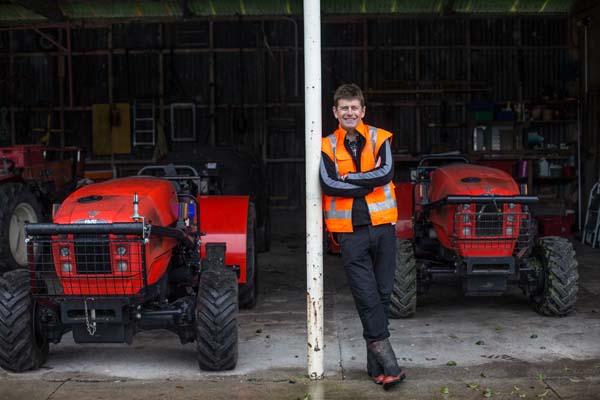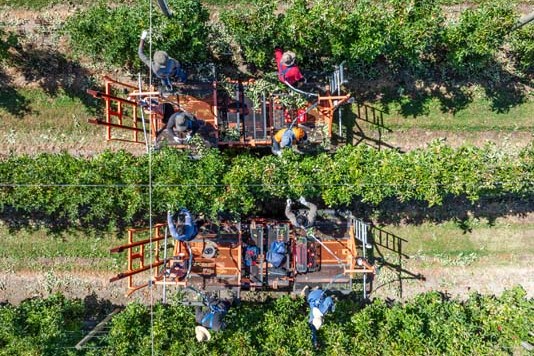Setting up a new team, an employer needs to know where they are going and what their aims are. By Anne Lee.
 If you’re starting out as a new employer, developing your new team isn’t necessarily going to be all about them – at least not at the beginning.
If you’re starting out as a new employer, developing your new team isn’t necessarily going to be all about them – at least not at the beginning.
Instead, it’s about starting with yourself, understanding your mission and purpose and building your skills as a leader.
Sarah Barr from Rural Coach says if you want your people to be motivated, keen to develop and learn and for the team to be pulling together in the same direction you need to let them know what they’re aiming for.
“There needs to be a sense of alignment between your goals and theirs but if you don’t know your purpose how can you articulate it to others and how will you find that common ground?”
If you’re a contract milker starting out you may have made your decisions on the level of staffing based on growing your own business as fast as you can.
“It’s fine to make decisions for yourself knowing there’s a compromise and you will be working flat out with long hours, but don’t impose that on your team.”
People need to feel valued and that they belong and they need three things for that:
- Autonomy – they need to feel they have some influence over how their day goes.
- Competence – they want the ability to grow their level of competence and be recognised for that growth.
- Relatedness or belonging – they can see how they fit into the team and the business and they feel like they can add value because that’s being reinforced for them by those they work with.
“Sometimes I hear people say they have team members who don’t want to learn anything, but often that’s because they haven’t taken the time to understand what motivates that team member.”

The real motivations for people are the intrinsic rather than extrinsic – motivators that come from within such as the desire to create security for their family or have a tight-knit family unit. If pay is taken off the table as an issue because I’m being paid fairly then what’s going to motivate me the most is the fact you make sure I’m home every night to eat dinner with my children or you let me take the morning off to go to school sports, she says.
“But you’re not going to know what motivates them unless you get to know them and that will mean spending time with them.
“If people say they don’t have time to spend with their team I say it’s not that you don’t have time, it’s that you have prioritised something else above that.
“Schedule time with staff members in your calendar.”
Why is all this important for developing and growing your people?
Because motivated, engaged people are going to show up to work each day eager to do a great job and build on their competency.
“If I know your goals and motivators then I can work out how our goals can be mutually met.
“And if I grow you, that’s going to be beneficial to me because you’re working in my business and I’m going to benefit from your improved capabilities.
“No one is fighting for your business as hard as you are, but if you invest in your people you may end up with four or five people all pulling in that direction with you and that’s a powerful thing.”
Sarah says in helping farmers become good coaches of people she often gives them a skills checklist for different positions onfarm which can be modified to more specifically suit the farm.
“They give a starting point for a development conversation – here are the skills for this position, let’s talk about where your skills are at, what do we need to improve on, how can we do that and by when?”
They can also be used to show the skills necessary for the next position so you can begin helping them work towards that job.
“You might have the big growth conversations quarterly but each month you are checking in with them to find out how they’re progressing with learning the skills you agreed needed development; you’re asking – what else can we do to help you with that?”
It might be they wanted to learn more about animal health around calving but they’ve been busy with calves when there’s been an opportunity to treat a down cow.
Having the quick check-in means you make sure they’re called over the next time a cow needs treating.
“If the time between check-ins is too long things get forgotten and one thing you must not do is raise hopes by having great development meetings and then not follow through.
“I think in many ways that’s worse than if you never had the conversation in the first place.
“If your actions follow through on your conversations, you help them feel like they have some autonomy in their learning, they’re improving their competency and they feel like that matters to you too – they feel valued.”
In the People360 programme she carries out, Sara says she goes through a full circle review process.
The leader and team members all have an opportunity to review what is going well and where there are opportunities for improvement when it comes to how the team and the farm operates.
It can require courage from the leader of the business but it is a powerful tool in creating an effective, motivated, happy team.
“We’ll ask everyone questions that, for instance, relate to how trusted and valued they feel, are there clear systems and processes in place?
“The first step in leading people is being able to lead yourself and if you have a blind spot when it comes to any of these factors your effectiveness is going to be compromised.”
Both positive and corrective feedback to the team members is important.
“Just saying great job team every day soon becomes grey noise. Be specific and responsive – so talk about a specific action and why it was good and how it helped.”
Respectful corrective feedback is important too because without it you set them up to continue to fail.
“And you’ve set yourself up to continue to be irritated.”
If you have a potential leader in the team, give them more responsibility but ensure they are given the tools and skills to be successful in the endeavour.
Accept there is some risk in handing over more responsibility but think about what those risks are and work with them on managing them so that too becomes a learning opportunity.





